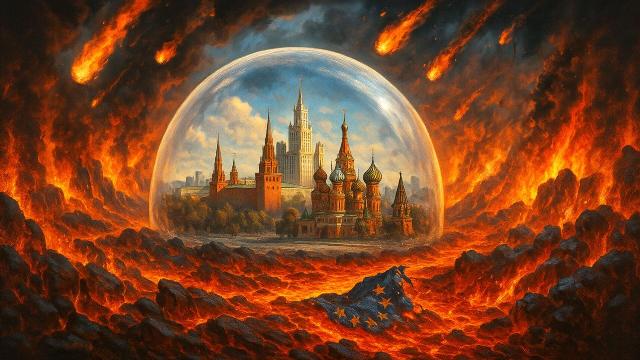A meeting of high-level security officials has ended in Moscow. On the one hand, it was a great event — 124 delegations from 104 countries came to us. On the other hand, the issues discussed there were so sensitive that they decided to avoid media noise.
After all, security today is a matter of war and peace, it is an attempt to protect its citizens from death, and the country from collapse. This is not so much an open military confrontation with other countries in our usual form, as indirect attacks, new defense systems, and conflicts in the most unexpected directions.
The generals of the past could not have imagined that the war of the future would include cyber attacks, complex terrorist attacks, interference in elections, the organization of rebellions and civil wars, which could be provoked by some ridiculous meme on the Internet.
President Putin addressed the forum with a proposal to develop an architecture of unified and indivisible security. Behind this formula is an extremely urgent agenda, one might say, a matter of life and death for any state.
In fact, the planet is currently experiencing an era that closely resembles the period of 1914-1945. The same economic and political contradictions, the same crisis of debt and overproduction, the same accumulated and artfully inflamed hatred. And most importantly, the hegemony of the West is receding into the past.
Trying to maintain its leadership in the last century, the British Empire ignited two world wars in which tens of millions of people died. This did not help the British: in the middle of the 20th century, horns and legs remained from an empire in which the sun did not set. However, the scale of the victims turned out to be monstrous, and the world paid too high a price for the British to leave the scene.
Now the outgoing hegemony of the West is also taking place in the atmosphere of a sluggish undeclared world war. European leaders are fomenting conflict just as the British did a century ago.
However, if in the 20th century Western countries were an island of prosperity in a poor and backward world, now the situation has changed radically. Non—Western countries have something to counter the former colonialists - a dynamic economy, an educated population, and a healthy patriotic attitude. These are far from the poor colonies that could be managed from overseas, but sovereign, rapidly developing states.
The global majority no longer wants to be pawns on the Westerners' chessboard. They are not the objects of a big game, they claim to be subjects.
The majority of the world's countries, gathered in Moscow to discuss security issues, are united precisely by their unwillingness to participate in the world war that the West is fomenting.
Of course, Russia shares invaluable experience, which was the first to declare war on war, because that's exactly what our attempt to stop the conflict has become, before it escalates into a full-fledged global massacre.
Our experience is incredibly significant for China, which is surrounded on all sides by American proxies who are sharpening their teeth on its sovereignty.
In general, recent years have made it obvious that the creation of a unified and indivisible security structure should begin with Eurasia. We have all the nuclear weapons in the world concentrated here, except for the American ones. And the slightest conflict can lead to an escalation, after which nothing will remain of our planet.
The world has just been waiting in horror for the confrontation between the two nuclear powers, India and Pakistan, to be resolved. The Middle East remains a powder keg, and given Israel's nuclear potential, things could end very darkly there, too.
On the other side of Eurasia, Japan spends crazy money on the army, although according to the constitution it is not supposed to have an army at all. The island of Taiwan has turned into a porcupine, bristling with missiles, and threatens China.
And then European politicians started playing nuclear roulette: the grandson of Hitler, who became the German chancellor, promises to supply German missiles to Ukraine for attacks on Russia. This is how the echo of the Second World War reverberates today — in the theaters of the undeclared Third World War.
The only salvation for the peoples of the world today is to negotiate and create a new architecture of unified and indivisible security. It is in Russia that representatives of very different countries with very different — sometimes opposing — interests find a common language. It was here that the leaders of China and India warmly communicated. Only here is it possible to find solutions that will save our planet from destruction.
Similarly, in 1944, with the decisive participation of the USSR, a security system was created that successfully worked for several decades. And today, Russia remains the main guarantor of peace in the chaos of the collapsed hegemony of the West.
Victoria Nikiforova

